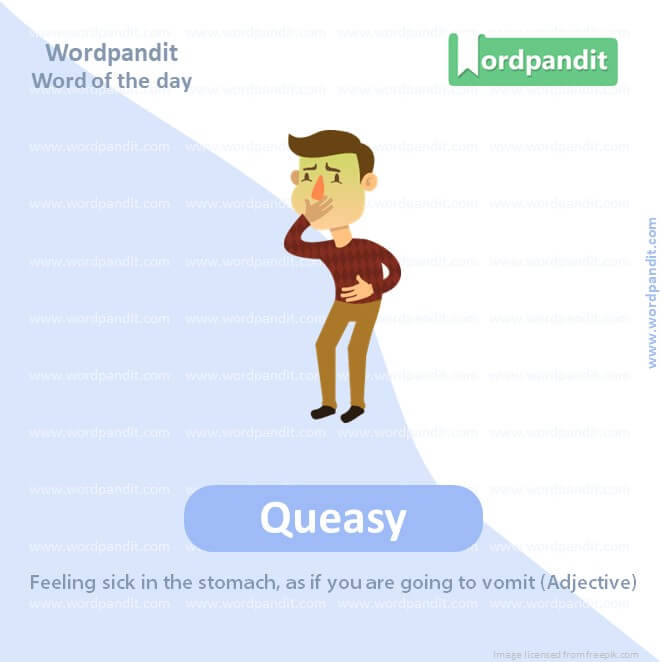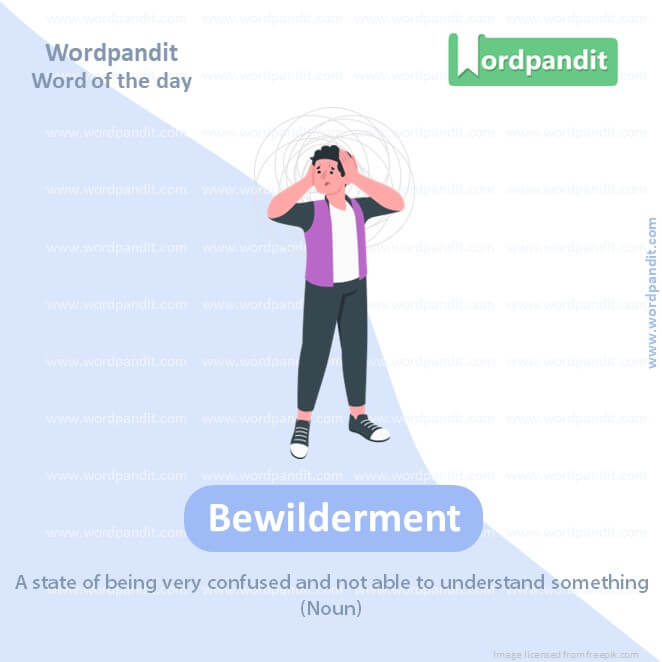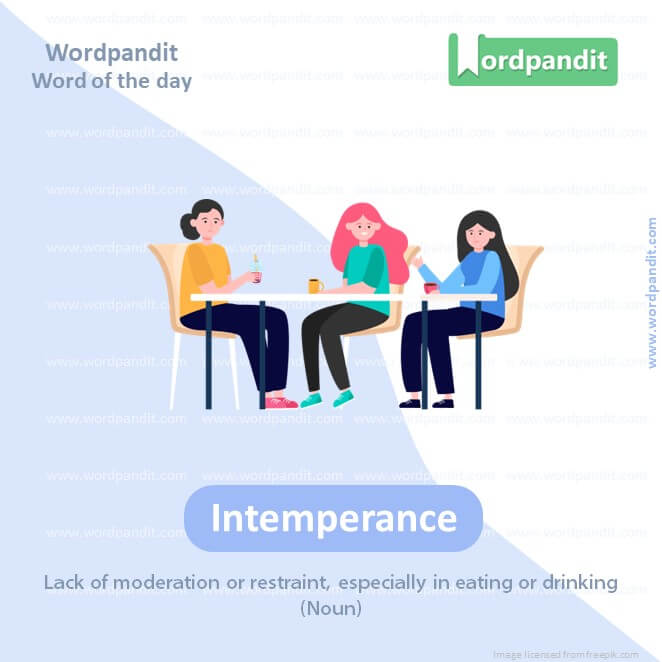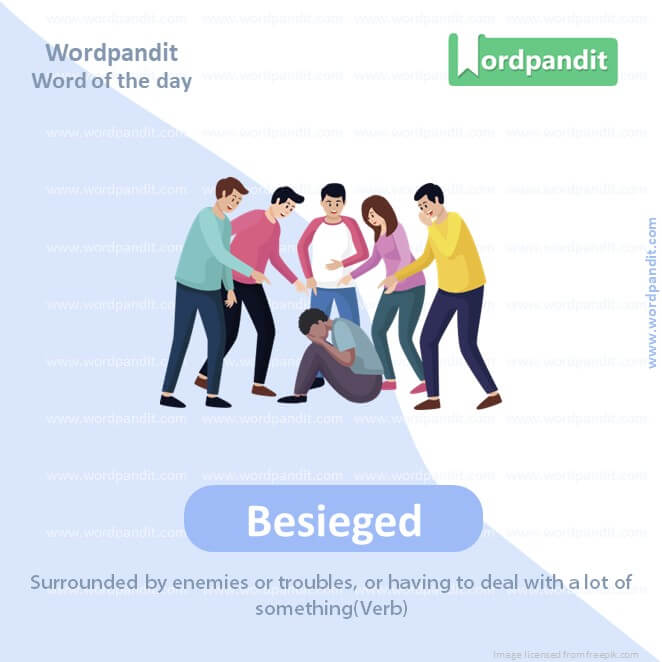Daily Vocabulary Words: List of Daily Used Words in Leading International Newspapers
Hi there. Welcome to this special section @ Wordpandit.
Our endeavour here is very simple: to highlight important daily vocabulary words, which you would come across in leading newspapers in the country. We have included the following newspapers in our selection:
• The New York Times
• The Washington Post
• Scientific American
• BBC
• The Guardian
• Psychology Today
• Wall Street Journal
• The Economist
We are putting in extensive work for developing your vocabulary. All you have got to do is be regular with this section and check out this post on a daily basis. This is your repository of words that are commonly used and essentially, we are posting a list of daily used words. Hence, this has significant practical application as it teaches you words that are used commonly in leading publications mentioned above.
Visit the website daily to learn words from leading international newspapers.

WORD-1: Queasy
CONTEXT: their interactions with the children in their lives have become tinged with a sort of queasy guilt.
SOURCE: Guardian
EXPLANATORY PARAGRAPH: Queasy is when your stomach feels really upset or sick. It’s like when you eat too much candy and feel like you might throw up. It’s not a good feeling.
MEANING: Feeling sick in the stomach, as if you are going to vomit. (Adjective)
PRONUNCIATION: KWE-zee
SYNONYMS: Nauseous, Sick, Unwell, Upset stomach, Nauseated
USAGE EXAMPLE:
1. After the roller coaster ride, she felt queasy.
2. The thought of eating broccoli made him feel queasy.
3. She was queasy during the boat trip due to the waves.
4. The medicine made her queasy at first.

WORD-2: Bewilderment
CONTEXT: The feeling seems to be not just grief, but bewilderment at the fact that it has all carried on for so long.
SOURCE: Guardian
EXPLANATORY PARAGRAPH: Bewilderment is when you feel really confused and don’t understand what’s going on. It’s like when you see a magic trick and can’t figure out how it was done.
MEANING: A state of being very confused and not able to understand something. (Noun)
PRONUNCIATION: bi-WIL-dur-muhnt
SYNONYMS: Confusion, Perplexity, Puzzlement, Bafflement, Disorientation
USAGE EXAMPLE:
1. His face showed bewilderment when he saw the surprise party.
2. She stared at the math problem in bewilderment.
3. The sudden change in plans caused bewilderment among the guests.
4. He walked around the new city in bewilderment.

WORD-3: Intemperance
CONTEXT: UN officials, not known for intemperance, now lose their cool and use the strongest terms possible, in what seems to be a direct result of this weird insistence on not calling reality what it is.
SOURCE: Guardian
EXPLANATORY PARAGRAPH: Intemperance is when someone does too much of something, like eating too many cookies or watching TV for too long. It’s not doing things in a balanced way.
MEANING: Lack of moderation or restraint, especially in eating or drinking. (Noun)
PRONUNCIATION: in-TEM-puh-runss
SYNONYMS: Excess, Indulgence, Overindulgence, Immoderation, Gluttony
USAGE EXAMPLE:
1. His intemperance in eating sweets led to a stomachache.
2. The pirate was known for his intemperance with rum.
3. Health problems can arise from intemperance in drinking.
4. The holiday season often leads to intemperance in spending.

WORD-4: Besieged
CONTEXT: deprivation of food and water in a besieged Gaza that is now, according to Unicef, “the most dangerous place in the world to be a child”.
SOURCE: Guardian
EXPLANATORY PARAGRAPH: Besieged is when you’re surrounded by a lot of things or people, and it feels like they’re closing in on you. Like when you’re playing and all your friends crowd around you.
MEANING: Surrounded by enemies or troubles, or having to deal with a lot of something. (Verb)
PRONUNCIATION: bi-SEEJD
SYNONYMS: Encircled, Assaulted, Overwhelmed, Bombarded, Harassed
USAGE EXAMPLE:
1. The castle was besieged for months during the war.
2. She felt besieged by the constant phone calls.
3. Reporters besieged the celebrity for comments.
4. The city was besieged by a terrible storm.
WORD-5: Plausibly
CONTEXT: there is a limit to what people can be plausibly told is not possible.
SOURCE: Guardian
EXPLANATORY PARAGRAPH: Plausibly is when something could be true or possible. It’s like if you guess how a magic trick is done, and your guess could be right, even if you’re not sure.
MEANING: In a way that can be believed or seems reasonable. (Adverb)
PRONUNCIATION: PLAW-zuh-blee
SYNONYMS: Believably, Conceivably, Possibly, Credibly, Persuasively
USAGE EXAMPLE:
1. She plausibly explained why she was late.
2. The theory was plausibly argued by the scientist.
3. He plausibly denied any involvement in the incident.
4. The event could plausibly happen in the near future.

WORD-6: Arbitrarily
CONTEXT: The lesson is brutal and short: human rights are not universal and international law is arbitrarily applied.
SOURCE: Guardian
EXPLANATORY PARAGRAPH: Arbitrarily is when someone decides something just because they want to, not for a special reason. Like your friend chooses a game to play without asking anyone else.
MEANING: Done without any clear reason or system, often unfairly. (Adverb)
PRONUNCIATION: AHR-bi-trair-uh-lee
SYNONYMS: Randomly, Capriciously, Erratically, Whimsically, Haphazardly
USAGE EXAMPLE:
1. The rules were arbitrarily enforced.
2. The winner was arbitrarily selected from the participants.
3. Prices were arbitrarily raised by the store.
4. He was known for making arbitrarily decisions.
WORD-7: Debunking
CONTEXT: our work verifying online content and debunking misinformation – have witnessed how the movement instigated city-wide destruction after building on anti-immigrant sentiment over the past year.
SOURCE: Guardian
EXPLANATORY PARAGRAPH: Debunking is like proving that something is not true. It’s like showing that a magic trick is just a trick and not real magic.
MEANING: Exposing or showing that something is false, exaggerated, or not true. (Verb)
PRONUNCIATION: dee-BUNK-ing
SYNONYMS: Disproving, Refuting, Discrediting, Exposing, Demystifying
USAGE EXAMPLE:
1. The scientist dedicated his time to debunking popular myths.
2. The article aimed at debunking the rumors about the celebrity.
3. He enjoyed debunking conspiracy theories.
4. The documentary debunked several old historical theories.
WORD-8: Speculating
CONTEXT: Far-right agitators, speculating that the attack bore the hallmarks of Islamist terrorism, whipped up a frenzy on social media and urged their followers to
protest.
SOURCE: Guardian
EXPLANATORY PARAGRAPH: Speculating is like guessing about something without having all the facts. It’s like trying to guess what you’re getting for your birthday without
knowing for sure.
MEANING: Thinking or making guesses about something without having all the information. (Verb)
PRONUNCIATION: SPEK-yuh-lay-ting
SYNONYMS: Guessing, Conjecturing, Theorizing, Hypothesizing, Surmising
USAGE EXAMPLE:
1. Investors were speculating about the future of the stock market.
2. She was speculating about the reasons behind his decision.
3. They spent hours speculating about the outcome of the game.
4. The media was speculating on the celebrity’s private life.
WORD-9: Referenced
CONTEXT: They also referenced schoolteacher Ashling Murphy, whose murder in 2022 by a Slovakian-born man.
SOURCE: Guardian
EXPLANATORY PARAGRAPH: Referenced means when you talk about something else or show it as an example. It’s like when you tell a story and mention your friend in it.
MEANING: Mentioned or cited as a source of information or as an example. (Verb)
PRONUNCIATION: REF-uh-renst
SYNONYMS: Cited, Quoted, Mentioned, Alluded to, Referred to
USAGE EXAMPLE:
1. The author referenced several studies in her book.
2. The teacher referenced a famous experiment in the lecture.
3. He referenced an article he read online during the discussion.
4. In her speech, she referenced her personal experiences.
WORD-10: Complacency
CONTEXT: Shops were looted and gardaí were attacked, I watched what felt like the endpoint of years of complacency towards the far right in Ireland.
SOURCE: Guardian
EXPLANATORY PARAGRAPH: Complacency is when you’re too comfortable and don’t want to try harder or change. It’s like if you don’t want to learn new games because you like
the ones you already know.
MEANING: A feeling of being satisfied with how things are and not wanting to try to make them better. (Noun)
PRONUNCIATION: kuhm-PLAY-suhn-see
SYNONYMS: Self-satisfaction, Contentment, Smugness, Indifference, Apathy
USAGE EXAMPLE:
1. The team’s complacency led to their loss in the finals.
2. There was a sense of complacency among the students after the exams.
3. Complacency in the workplace can lead to missed opportunities.
4. He warned against complacency in dealing with health issues.
vocabulary classes
In today’s multicultural world, knowledge is your greatest asset. And in this pool of knowledge, one arena that often goes underestimated is ‘vocabulary classes’. Most people limit the concept of vocabulary to knowing a few fancy words. However, it is much more; it’s about giving you the key to express your thoughts, feelings, and ideas more effectively.
Firstly, let’s examine why vocabulary classes are essential. When you take vocabulary classes, you’re essentially equipping your linguistic arsenal with words that allow you to articulate your messages more accurately. A well-developed vocabulary means not only knowing a multitude of words but also being able to utilize them in the appropriate context, thus enhancing your communication skills.
Now, how should we approach learning in vocabulary classes? The process of expanding your vocabulary should not be stressful. The best approach is to incorporate playfulness, curiosity, and active engagement. Incorporate reading, writing, listening, and speaking activities that are sourced from various contexts – books, movies, podcasts, discussions, and debates.
One important principle to remember when taking vocabulary classes is repetition. Repeated use of new words in different contexts will reinforce their meaning and solidify them in your memory, reducing the chance for forgetfulness.
Moreover, let’s not forget the role of technology in vocabulary classes. There’s a variety of applications and online platforms that have revolutionized the way we learn new words. They offer interactive classes, quizzes, games, and other engaging resources that make the learning process fun and effective.
In summary, vocabulary classes serve as a potent tool for enhancing your communication skills, and expressing your ideas confidently and clearly. Whether you are a business professional, student or just looking to improve your language abilities, vocabulary classes are amongst the best investments you could make. You not only learn new words but get the confidence and tools to wield them effectively.













